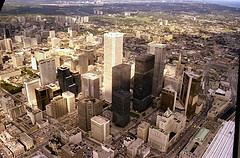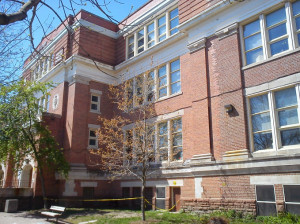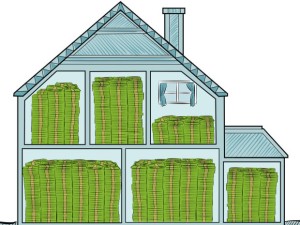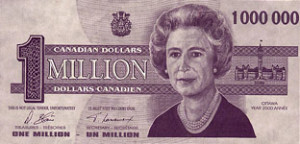Blog

Neighbourhood Exploration: What is it about Willowdale??
When you get a group of people from across the city in one room, talk often turns to Real Estate, both the insanity of Toronto’s market and the unwritten divide that exits in Toronto. People are either East Enders or West Enders, with Yonge St being the dividing line. Torontonians tend to stay in their corner of the city, taking comfort and pride in the familiar sights and sounds. Unfortunately, this thinking really limits your Real Estate options. It’s fair to say that if you are unfamiliar with or have never visited a particular neighbourhood it’s unlikely to be on your radar, but being open to all the city has to offer helps to avoid buying and paying more than you should in an overheated area. I have never found myself with any allegiance to the east or west end, but for those of you that get anxiety crossing over Yonge St, the thought of moving North of the 401 might send you into deep sweats. So let’s explore what is it about Willowdale that makes it such a desirable place to live for so many Torontonians.
Willowdale is considered downtown North York, and for many, the appeal is that it’s located smack dab in the middle of the GTA, bordered by Finch to the north, Bayview to the East, Bathurst to the West, and Sheppard to the South. Previously a suburban area north of Toronto, construction of the Yonge St. subway eventually led to a boom in condo development surrounding the Yonge St. corridor. As a result, freehold properties in surrounding areas have increased substantially in value. The average condo in Willowdale sells for just under $400,000 and you can expect to get a about 10-20% more space than what you would find at the same price point downtown. The inventory of detached homes in Willowdale is different from what you will find in neighbourhoods located closer to Toronto’s core, but don’t expect any price discounts. Willowdale attracts many of Toronto’s most affluent newcomers. In 2015, the average bungalow in Willowdale West has been selling for $1.1 M while a Detached 2 -storey will set you back $1.6M+. The West side of Yonge seems like a deal compared to the East where Bungalows have been averaging $1.3M and Detached 2-storey homes have been averaging almost $2 M this year.
So who is buying in Willowdale and why? The top languages spoken in Willowdale, aside from English, are Persian, Chinese, Russian, and Tagalong. Many Buyers find Willowdale appealing because you can find large recently built or brand new detached homes with lots ranging from 30’ to 60’ in width. The freehold inventory in Willowdale is made up of newer homes often with 3000 or more square feet and modern finishings. In the end though, it’s the home’s age and frontage that play the major role in the final sale price. The newer builds offer home buyers minimal maintenance compared to many of Toronto’s neighbourhoods to the south. These large houses often house extended families. The price tags are high, but the buying process is much less intense than Toronto’s southern neighbourhoods. Offer nights are not the norm these higher priced homes, and although they often sell close to asking price they might sit on the market for some time before finding the right buyer. Willowdale is quite walkable with a diverse array of restaurant options all along Yonge St. It’s transit friendly especially if you find something in good proximity to Yonge St. and most of the schools are well-ranked.
Willowsdale may or many not be the right option for you, but exploring what other neighbourhoods have to offer can lead to a better purchase. Before you even start looking at properties, it’s a good idea to have your Realtor do some neighbourhood analysis and recommend areas that match your price point. Have your Real Estate Broker send you ‘solds’ for similar priced properties across the city, and go visit a park, community event, or public space in a new neighbourhood to get a feel for all the city has to offer.
The Intricacies of Deciding When To Sell Your Home
The smell of fireworks has barely cleared the air and the number of new listings hitting the market this week compared to last is piling up. Active Listings in Toronto are currently 11% higher than they were on Monday and 15% higher than what they were 3 weeks ago. Often realtors discourage listing leading into a long weekend, and although this advice holds true for some properties, it shouldn’t be a hard and fast rule. After all, the rules of Real Estate are constantly changing. It wasn’t too long ago that holding an offer night in an area like Pickering would have been considered absurd by most agents, but this spring it has become fairly common practice.
Not listing prior to a long weekend has become an unwritten rule and usually results in a large increase in listings the following week. And while it’s true that some buyers have dashed off to New York, gone fishing, or have turned the weekend into a never ending bender (aka gone fishing), many home buyers stayed local hoping for an extra day to put towards their home search. Those dedicated Home Buyers staying in the city were likely disappointed with their lack of open house options.
The dramatic increase in listings that we are seeing this week could spell disaster for some Sellers, leaving them questioning what went wrong when they fail to attract the desired sale price for their home. Sure, if you have the most desirable home in your neighbourhood the increase in competition is unlikely to impact you; competition for those properties is less of a concern and exposure to a maximum number of Buyers is more important. For everyone else, the fact is Home Buyers are only able to give consideration to a limited number of properties in any given week. When you list on a week with a lot of inventory your offer night will attract fewer Buyers since they are spread out over multiple properties.
Opportunistic Buyers should take note of the increase in inventory and aim to see as many homes as possible this week. Those waiting for the summer or late fall months, where the average price for a home tends to be lower than the busy spring, might be surprised to see value in quality spring listings. Your Realtor can’t always predict how many listings are going to hit the market on any given week, but a little analysis, care, and strategic thinking should help you list your property at a more opportune time, leading to a higher sale price. Sellers should make sure their Broker gives proper consideration to these market dynamics. Staging is often seen as the top priority when selling, but I would argue that strategic guidance and analysis from your Realtor can be equally as important.
Are housing costs more than they were in 1985
Anybody who reads this Blog probably knows that I don’t like it when people sensationalize Real Estate news, and that I prefer to look at past results to help us make better decisions. Which is why I love this article by Jason Heath in the Financial Post on whether homes cost more now than they did 30 years ago. This is a great read that goes nicely with my recent post on whether Toronto Can Afford Million Dollar Homes. It provides a great comparison to what home buyers were facing in the 1980s and looks at Toronto specifically which helps readers digest information specific to their location.
We are often inundated with simple data and bold statements which, I think, leads to great misinterpretation. For instance, our Bank of Canada Governor made headlines in December stating that Canadian home prices could be seen as overvalued by as much as 30%. Many people could have immediately taken this information and localized it; for Toronto Home Buyers, this might have created the expectation that home prices were due to drop in 2015. In actuality, the opposite has happened in Toronto as we see home prices – especially for single family detached homes across the GTA – continue to head higher and higher.
Toronto’s Real Estate industry produces some great headlines, but knowing that a home attracted 25 offers or sold for $200,000 above asking price provides less market insight than you think. Even headlines coming from the experts can be misguiding if we don’t look into cause and effect.
First Time Home Buying in the 1980s and 1990s
 1980s
1980s
Interest rates in the 1980s were in double digits for most of the decade and the Bank Rate actually reached 22% in 1981, a far cry from today’s 3%. Despite seeing some heart stopping interest rates, home prices in the 1980s increased by 260% from $76,000 in 1980 to $274,000 in 1989.
First Time Home Buying in the 1950s, 1960s, 1970s
Do you remember your first time? You were probably nervous and worried you rushed the experience. With all the excitement, you were likely a little sweaty at some point in the process. For most it happens quicker than you anticipate, but for a few of us it seems to drag on forever. Immediately after it’s done, you should feel absolute delight, but it’s normal to have some self doubt. Like other first time memories, your first home purchase seems to be one most people don’t forget. Which is lucky for us, because we have gone all the way back to the 1950s to share First Time Home Buyer’s Experiences over the decades, a must read for anyone considering buying a home.
Has getting into the market always been this hard?! Have you ever considered asking your boss for a loan to fund your down payment? How much would you spend on a home if you were bringing in $3,500 a year? Check out what first-time home buyers were up against each decade, going all the way back to the 1950s, 1960s and 1970s!
Where to Buy and Sell This Week
Where to BUY in Toronto This Week: It’s been a long wait for home buyers/outdoor enthusiasts looking to buy in The Beach area where school quality is not a concern.
Why This Week: Inventory in The Beach, Woodbine Corridor, and Leslieville areas has been very limited throughout most of the summer and the majority of spring; however, active listings in The Beach and Leslieville have increased by over 50% since August and by approximately 20% from just 2 weeks ago. [..]







